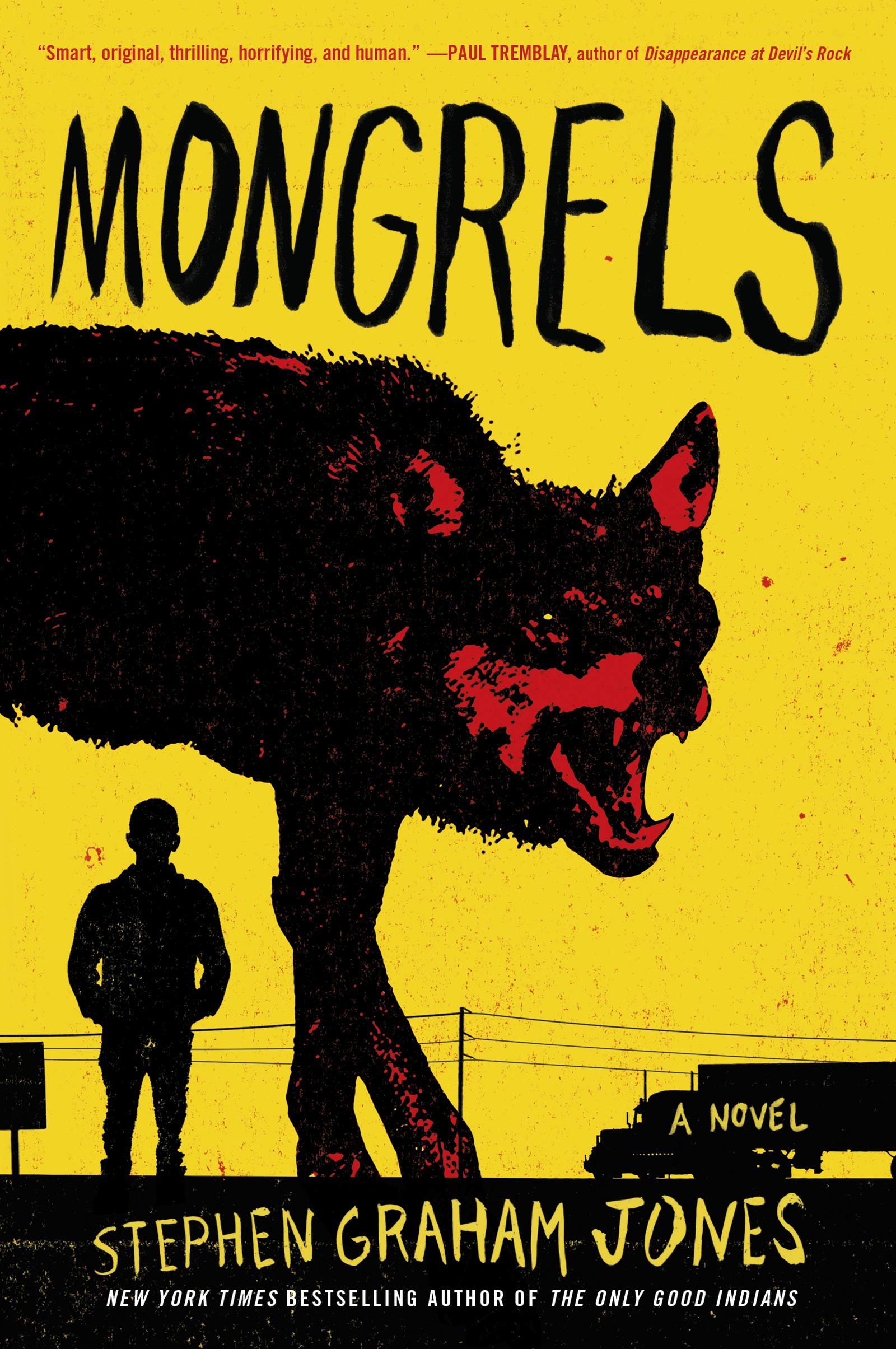Mongrels (2016)
Some werewolf facts: French fries are bad for werewolves. Werewolf urine is a great pesticide. A werewolf will never wear pantyhose. They never have to shave, and they always take the trash out. Some werewolves really love strawberry wine coolers and shouting answers at TV game shows. These are just some of the rules established in Stephen Graham Jones’s episodic novel Mongrels, in which an unnamed writer shares the lessons and lore passed down to him from his grandpa, aunt, and uncle. Mongrels is a coming of age—or rather, coming of monster—story, as our protagonist details his life from ages 8 to 16. The book opens with the narrator’s realization that the stories his grandpa has been telling him aren’t just stories. Even when he’s lying, he’s telling the truth: “This is how werewolf stories go. Never any proof. Just a story that keeps changing, like it’s twisting back on itself, biting its own stomach to chew the poison out.” It runs in the family. Like his grandpa and uncle, the protagonist is a storyteller too, sharing his life on the fringes: what it is like to exist in the margins of society in the American South, in a family focused on survival while living check to check, and what it is like to be itinerant, never staying anywhere too long, as things can turn bad quickly. The neighbors could show up with pitchforks and you’ll have to flee in a nearly broken down car (werewolves always have shitty cars—the kind you can just walk away from when they break down). And we learn what it is like to wolf out, as our host presents a guidebook that answers all the questions you didn’t realize you had about werewolves. Throughout the novel, the narrator struggles with the question: Is he what he thinks he is? Is he a werewolf like the family he knows, as he longs to be, or does he, as his aunt Libby hopes, have a chance at a normal and “better” life? 4.5 out of 5 sacs of blood.
—Gina Myers


